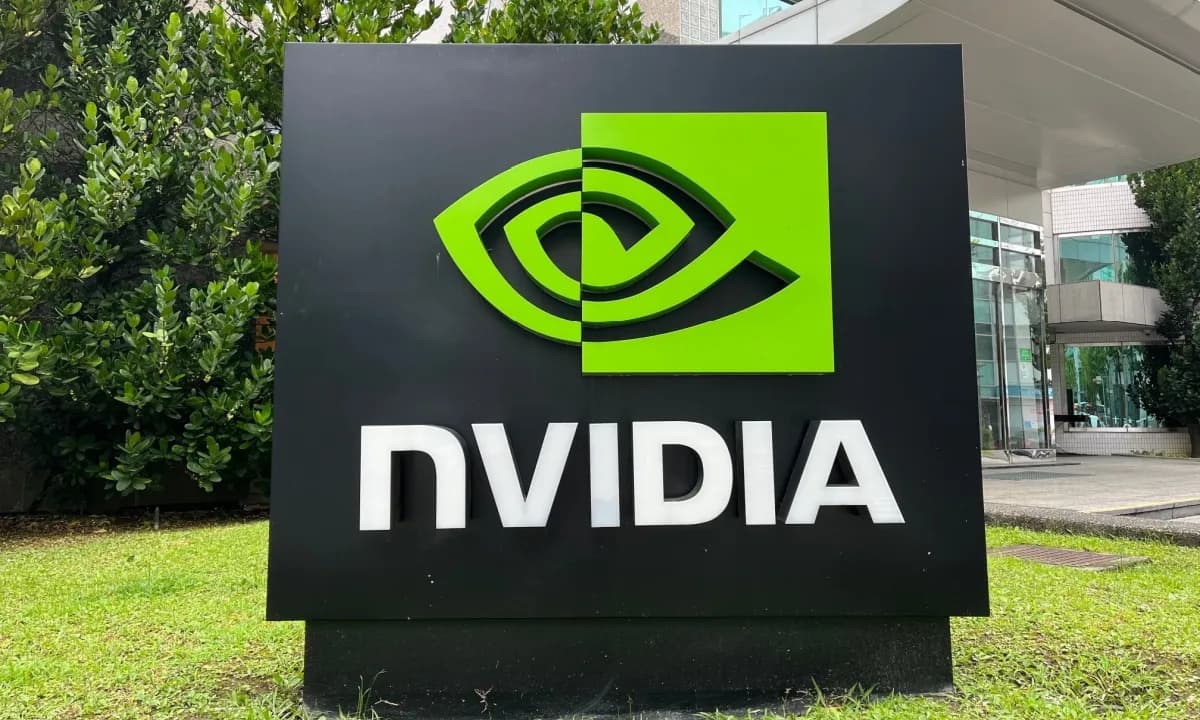We're loading the full news article for you. This includes the article content, images, author information, and related articles.
The global AI chip leader's defense against market-shaking allegations highlights the volatility of a tech sector increasingly crucial to Kenya's digital economy and local AI infrastructure projects.

USA – Global technology giant Nvidia has formally refuted allegations of accounting irregularities that circulated widely online, prompting intense debate over the financial stability of the world's most valuable semiconductor company. In a detailed memo sent to Wall Street analysts on Monday, 24 November 2025, the company systematically addressed claims of impropriety, which were amplified by famed short-seller Michael Burry and a viral article. The incident casts a spotlight on the high-stakes environment of the artificial intelligence sector, a domain of increasing strategic importance for Kenya.
The controversy emerged following Nvidia's stellar third-quarter earnings report on Wednesday, 20 November 2025. Shortly after, a Substack article titled “The Algorithm That Detected a $610 Billion Fraud” alleged the existence of circular financing schemes within the AI industry. Simultaneously, Michael Burry, an investor known for predicting the 2008 financial crisis, publicly questioned Nvidia's accounting of stock-based compensation (SBC) and the value of its share buyback program. Burry contended that Nvidia spent $112.5 billion on buybacks since 2018 primarily to offset share dilution from employee compensation, effectively misrepresenting the true cost.
In its seven-page memo, Nvidia’s investor relations team provided a point-by-point defense. The company clarified that it had repurchased $91 billion in shares since 2018, not the $112.5 billion Burry claimed, stating he appeared to have incorrectly included taxes related to restricted stock units (RSUs). The memo also rejected any comparisons to historical accounting scandals like Enron, stressing that Nvidia does not use special-purpose vehicles or rely on vendor financing. Furthermore, the company dismissed the “$610 billion circular financing” claim as unfounded, noting its strategic investments totaled approximately $4.7 billion year-to-date, a small fraction of its revenue. Nvidia confirmed it was not aware of any investigation by the U.S. Securities and Exchange Commission (SEC).
While the financial debate is centered in global markets, its implications are significant for Kenya. Nvidia, which reached a market capitalization of over $4.4 trillion in November 2025, is a foundational pillar of the global AI ecosystem. The company is also a key partner in developing Africa's AI infrastructure. Earlier in 2025, Nvidia partnered with Cassava Technologies in a US$700 million deal to establish AI-ready data centres across Africa, with Kenya designated as a key hub. In October 2025, Nvidia deepened this relationship by taking a direct, though undisclosed, equity stake in Cassava.
These facilities are critical to Kenya's national AI strategy and its ambition to become a regional tech leader. The establishment of local, GPU-powered infrastructure, such as the “AI Factory” launched by Atlancis Technologies in Nairobi in November 2025, is vital for fostering data sovereignty and allowing Kenyan innovators to build and train AI models locally. The stability and integrity of Nvidia are therefore directly linked to the viability of these multi-million dollar projects. Any significant downturn or loss of confidence in the world's leading AI chipmaker could tighten the availability of venture capital for emerging markets, including Kenya's 'Silicon Savannah'.
The episode underscores the intense scrutiny and investor anxiety surrounding the rapid growth of the AI industry, with persistent concerns about a potential market bubble. Nvidia's dominant market position, controlling over 90% of the GPU market for AI, makes its financial health a barometer for the entire sector. Financial analysts have largely sided with Nvidia, with Raymond James analyst Simon Leopold stating the “narrative of systemic fraud is inconsistent with NVIDIA's fundamentals.” However, Burry has maintained his position, telling Barron's he disagrees with the company's response.
For Kenya and the broader East Africa region, the situation serves as a critical reminder of the interconnectedness of the global tech economy. As the nation continues to invest in AI capabilities for sectors ranging from agriculture to finance, the performance and governance of international technology partners like Nvidia will remain a crucial factor in its long-term success. The swift and detailed nature of Nvidia's rebuttal appears to have calmed immediate market fears, but the underlying questions about the sustainability of the AI boom persist.
Keep the conversation in one place—threads here stay linked to the story and in the forums.
Sign in to start a discussion
Start a conversation about this story and keep it linked here.
Other hot threads
E-sports and Gaming Community in Kenya
Active 9 months ago
The Role of Technology in Modern Agriculture (AgriTech)
Active 9 months ago
Popular Recreational Activities Across Counties
Active 9 months ago
Investing in Youth Sports Development Programs
Active 9 months ago